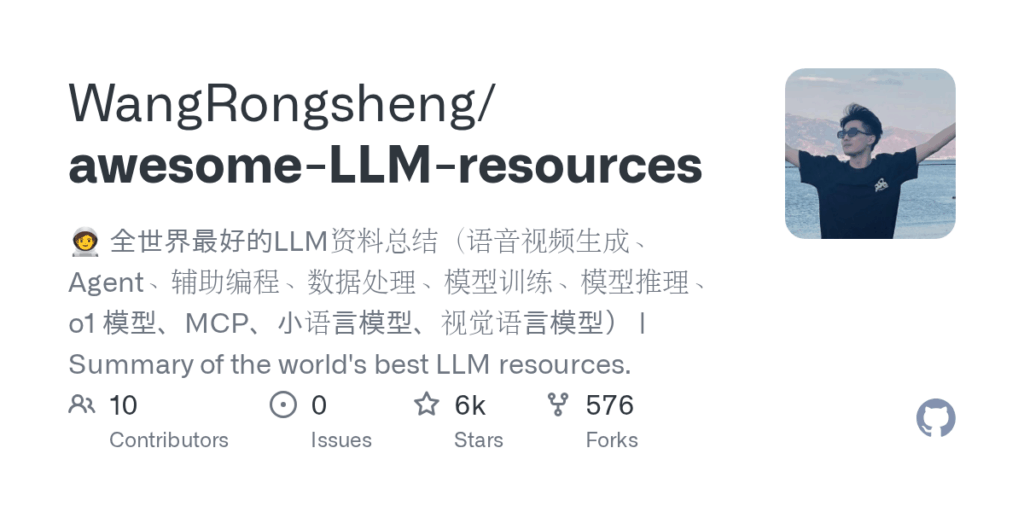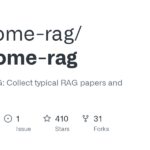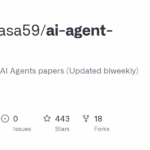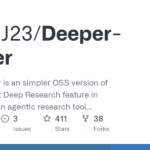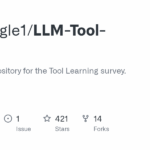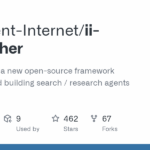awesome LLM resources
Basic Information
This repository is a curated, continuously updated collection of resources for large language models (LLMs). It aggregates tools, libraries, papers, tutorials, courses and community links in Chinese and English to help practitioners, researchers and engineers discover materials across the LLM ecosystem. The README organizes resources into many topical sections such as Data, Fine-Tuning, Inference, Evaluation, Usage, RAG (retrieval-augmented generation), Agents, Coding, Video, Search, Speech, Unified Models, Papers, Courses, Tutorials, MCP and open o1 research. It highlights representative projects, toolkits and benchmarks and provides an outline and table of contents for quick navigation. The project includes contributor information, badges and an online readable version and is presented as an authoritative index of notable open-source and academic artifacts related to LLM development.

